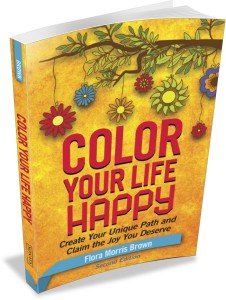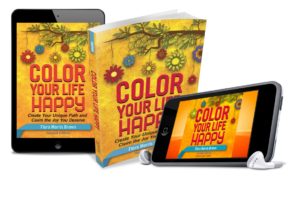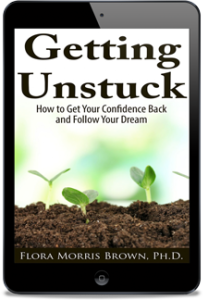Most of the luxuries and many of the so-called comforts of life are not only not indispensable, but positive hindrances to the elevation of mankind.
—Henry David Thoreau
In the movies of my childhood about the westward migration of Americans in the 1800s, there was always a string of rickety wagons loaded with families’ worldly possessions slowly crossing the prairies. Bed frames and rocking chairs were tied on top with pots and pans clanging against the sides. Drawn to what they hoped would be a more prosperous life on cheap land they’d heard about in letters from relatives and friends who had gone before, the pioneer families pushed on in spite of dwindling supplies, wagon breakdowns, and occasional fights with cantankerous fellow pioneers along the way.
As the movie family grew weary of fighting off disease, battling with Native Americans who were desperately trying to protect their land and families, stopping only to bury those on whom the trip had taken its toll, plus trying to keep up their spirits, they eventually realized they could travel faster if they lightened their load. The western migratory trails became lined with discarded household furniture and other possessions.
You have succeeded in life when all you really want is only what you need.
—Vernon Howard
While the pioneers shed their possessions to expedite their westward journey, throughout history, people have chosen simple living for spiritual, secular, health, anti-consumerism, and other reasons.
He has the most who is most content with the least.
—Diogenes
The move to simpler living
Simple living has deep historical roots. Diogenes of Sinope (fourth century BCE), believed that happiness comes from meeting our basic needs. He is credited with many witticisms regarding simple living. Thoreau (2013), American author, poet, abolitionist, and naturalist (born in 1817 in Concord, Massachusetts), conducted a two-year experiment with simple living in a cabin he built beside Walden Pond. Mohandas K. Gandhi, born in India in 1869, is best known for non-violent civil disobedience and living a simple life of self-sufficiency.
Many ordinary people today are throwing up their hands in defeat, trying to keep up with the Joneses at the cost of amassing huge debts. They have engaged in a “simplicity movement” to reduce stress and become participants rather than bystanders in their lives. The possessions we craved in the past, such as luxury cars, expensive wardrobes and accessories, and a big house with a big backyard, have betrayed us. The satisfaction we expected from our expensive possessions is short-lived. Our sense of well-being also declines as we see the cost of keeping up our possession-rich lifestyle becoming too high.
Putnam (2000) found these efforts to keep up with the Joneses by commuting to higher paying jobs disturbing, not just for what it does to our personal lives, but for what it means to our community. Those of us who have been freeway fliers making long commutes to work didn’t need Putnam to tell us those commutes are killers. Putnam found that every ten minutes of commuting results in ten percent fewer social connections. Commuting adds to social isolation and is destined to contribute to unhappiness.
I’m a former road warrior. Trust me—you do not ever get used to the commute. It’s not the miles that get you down. It was the uncertainty brought on by changing weather, the rising cost of gas, and accidents and detours that persuaded me to move closer to my job. After driving thirty-five miles one way to work the first year of my last full-time job, it wasn’t long before I vowed to move closer. Yes, it meant selling my house and uprooting my kids, and getting settled into a new lifestyle. But my peace of mind depended on it. When I found a house eight and a half miles from my job, I was elated. For the first time in my married life, I could be home in minutes, easily attend my kids’ school events, and even walk to the store, the post office, and other places if I chose to do so.
Americans’ fascination with cars has diminished so much in our nation. In fact, the less time we have to spend in them, the happier we are. A major consideration for families considering a move is the “walk score” of the location, which you can find for your home and workplace at http://www.walkscore.com. The more errands, socializing, and civic engagement that can be accomplished on foot, the higher the walk score.
More than just a reaction to economic conditions, simpler living is enabling families to spend more time together. Parents can read to their kids at night. We worry less about bills and upkeep. On a practical level, moving to a smaller dwelling also means less to store and clean. People who can downsize without feeling deprived can better enjoy the possessions that have high value for them.
You may already have the life you want
Many of us find we are happier when we simplify our lives. But many of us are also like the American tourist in the following story, which is similar in spirit to the philosophy of the Chinese philosopher, Chuang Tzu.
An American tourist stood at the pier of a small coastal Mexican village and watched as a small boat with just one fisherman docked. Inside the small boat were several large yellowfin tuna. The tourist complimented the Mexican fisherman on the quality of his catch and asked how long it had taken to catch them.
“Only a little while.”
“Then why didn’t you stay out longer and catch more fish?” the tourist asked.
“With this,” the fisherman said, “I have more than enough to support my family’s needs.”
“But what do you do with the rest of your time?”
The fisherman said, “I sleep late, fish a little, play with my children, take a siesta with my wife, Maria, and stroll into the village each evening. I sip wine and play guitar with my amigos. I have a full and busy life.”
The tourist scoffed. “I can help you. You should spend more time fishing and use the proceeds to buy a bigger boat. With the proceeds from the bigger boat, you could buy several boats. Eventually, you would have a fleet of fishing boats. Instead of selling your catch to a middleman, you could sell directly to the processor and open your own cannery. Then you would control product, processing, and distribution. You could leave this small village and move to Mexico City, then to Los Angeles, and eventually to New York, where you could run your ever-expanding enterprise.”
“But, how long will this take?” the fisherman asked.
“Fifteen to twenty years.”
“But what then?” asked the fisherman.
The tourist laughed. “That’s the best part. When the time is right, you would sell your company stock to the public and become very rich. You would make millions!”
“Millions? Then what?”
“Then you would retire,” the American said. “Move to a small, coastal fishing village, where you would sleep late, fish a little, play with your kids, take a siesta with your wife, and stroll to the village in the evenings, where you could sip wine and play your guitar with your amigos.”
Do you, like the American tourist in the story, long for a simpler life, but believe you can only have it in some distant future? The truth is, of course, that you can have it now. You can use one or more of the following ideas to simplify your life and enjoy it more every day.
Slow down
Since the beginning of the Industrial Era in our country, we seem to have become obsessed with doing things faster and faster. Have you almost been sideswiped by a grocery shopper rushing to beat you to the checkout line? Or was that you who whizzed by me?
Our lives are so rushed, it’s a wonder we even see the scenery as we go through life. Oh, that’s right—we don’t.
Honoré (2005) pointed out that slow is a state of mind. He said,
Fast isn’t turning us into Masters of the Universe. It’s turning us into Cheech and Chong…Slow is just a new word to understand old problems…It’s a re-freshening of ideas that have been there since time immemorial. But there’s a new appeal about the word slow. It’s pithy, it’s countercultural. (Cited in Green, 2008)
Americans are so unfamiliar with the concept of slowness that when his book was published in the U.S., its title was changed from In Praise of Slow to In Praise of Slowness (but with the same subtitle).
The Slow Movement
The slow movement began in Italy in the 1980s as the Slow Food Movement. Now “slow” is a term used to encourage us to do everything at the right speed, whether it’s education, exercise, sex, or work. The slow movement isn’t “anti-speed.” It favors connectedness. Rushing through everything prevents us from savoring food, enjoying life experiences, and associating with people. Honoré doesn’t suggest that we slow our lives to a snail’s pace. But he finds it troubling that we have one-minute children’s stories, speed dating, and the need to amass thousands of so-called friends on Facebook, each of which diminishes the opportunity for a meaningful encounter.
If you always feel tired and rushed, and can barely remember what you did, ate, or saw in a day, then you know you need to slow down. It’s no surprise that the Slow Food Movement began in Italy, the home of fabulous food. When Carlo Petrini learned that McDonald’s planned to build a franchise near the Piazza di Spagna in Rome, he organized a demonstration. As weapons of protest, he and his followers threw—what else?—penne pasta. Soon after, Petrini founded the International Slow Food Movement, which encourages us to take care with what and how we eat. The Slow Food Movement’s advocates want to save endangered foods such as the red abalone, Northern California heirloom turkeys, and Vella Cheese Company’s dry, aged Monterey Jack cheese, promote responsible agricultural systems, and help us return to the joy of food preparation and consumption.
If you’re ready to slow down, here are some ideas to get you started:
• Avoid cookie-cutter homes by visiting www.TheSlowHome.com.
• Enjoy your travel. Ease over to SlowPlanet.com and wrap yourself in sustainable clothes, jewelry and furniture at http://alabamachanin.com.
• Disenchanted with instant messaging? Try the slow electronic mail movement at www.slowlab.net.
• Learn more about the Slow Movement at www.CarlHonore.com.
Investigate these ideas on slowness. The slow life may be just your speed.
Have you cut back, slowed down or simplified your life in some way? Share in the comments how it affected your happiness.
[feature_box style=”23″ only_advanced=”There%20are%20no%20title%20options%20for%20the%20choosen%20style” alignment=”center”] 
This is an excerpt from Chapter 6, Simplifying Your Life for Happiness in Color Your Life Happy: Create Your Unique Path and Claim the Joy You Deserve, 2nd edition. Visit https://coloryourlifehappy.com to get updates on when the book is available at Amazon and other major booksellers. [/feature_box]
References
Green, Penelope. (2008, January 31). The slow life picks up speed. Retrieved from
http://www.nytimes.com/2008/01/31/garden/31slow.html
Honore, C. (2005). In praise of slowness: Challenging the cult of speed.
New York: Harper One.
Putnam, R. D. (2000) Bowling alone: The collapse and revival of American
community. New York: Simon & Schuster, 2000.
Thoreau, H. D. (2013). Walden. New York: Empire Books.




 Follow
Follow



Speak Your Mind